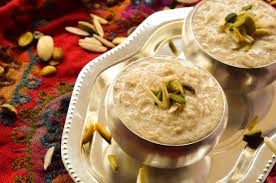
This is a question on the tongues of many Muslims and in the minds of many already, as we near to the end of the holy month. Eid is a day of happiness and bliss. A festival ordained by Allah SWT, so much so, it is Haram to fast on the days of Eid (1st Shawwal, 10th, 11th, 12th, 13th Dhul Hijjah). But the question still remains brothers and sisters, “When is Eid?”
The answer to that is not one word or one day. One of the Salaf said, “My Eid is the day in which I do not commit a sin.” Further to this, I recently listened to a talk by his eminence, the honourable, Shaykh Muhammad Saleem Dhorat Saheb (Hafidhahullah) of Leicester, UK. He explained when the ‘true’ Eid is, it really changed my perspective on Eid and this temporary life we are passing through. Below are a few things I happened to remember:
We do not know when we will depart from this transient and fleeting world, neither you know neither I know. Life and death are not guaranteed, perhaps this is the last advice of mine you will hear (because I no longer remain or you don’t). I plead to you sincerely with advice, cut off from your life of sins. Leave the television, music, lustful glances at Haram, the love of wealth, following your desires, all of this will be left behind (once you die). We have all fasted the month of Ramadhan, Alhumdu Lillah! Don’t you feel proud of yourself? Of course you do! This is the difference between sins and obedience. When you sin, the happiness is temporary, just five or ten minutes. But in obedience it is long lasting e.g. 20 years later you will remember these fasts, the Qur’an you read, the one Subhan Allah you said in the Masjid. And you will feel joy in your heart, this joy is forever and ever.
This is only when you obey Allah SWT, then every hour and every minute is Eid for you.
The moment you die, then your soul is content and happy, ready to return to Allah SWT, this will be Eid for you.
The angels will descend to welcome you, this will be Eid for you.
The moment you are lowered into your grave, like a garden of Jannah, this will be Eid for you.
On the day of judgement, Allah will give you shade under His throne, this will be Eid for you.
When you are given your books of deeds in the right hand, this will be Eid for you.
Crossing the bridge of sirat at the speed of lightning, this will be Eid for you.
Then, your final abode, Jannah! Allah’s angels will great you, “Salam! Salam!” This will be Eid for you.
Just imagine the angels doing Salam, the ecstatic feeling in your heart…
“The Messenger of Allah recited this Verse: ‘For those who have done good is the best reward and even more.’
Then he said: ‘When the people of Paradise enter Paradise, and the people of the Fire enter the Fire, a caller will cry out: “O people of Paradise! You have a covenant with Allah and He wants to fulfil it.” They will say: “What is it?” Has Allah not made the Balance (of our good deeds) heavy, and made our faces bright, and admitted us to Paradise and saved us from Hell?” Then the Veil will be lifted and they will look upon Him, and by Allah, Allah will not give them anything that is more beloved to them or delightful, than looking upon Him.'” (Ibn Majah)
This will be Eid!
The Prophet (ﷺ) said, “Allah will say to the people of Paradise, “O the people of Paradise!” They will say, ‘Labbaik, O our Lord, and Sa`daik, and all the good is in Your Hands!’ Allah will say, “Are you satisfied?’ They will say, ‘Why shouldn’t we be satisfied, O our Lord as You have given us what You have not given to any of Your created beings?’ He will say, ‘Shall I not give you something better than that?’ They will say, ‘O our Lord! What else could be better than that?’ He will say, ‘I bestow My Pleasure on you and will never be angry with you after that.’ “ (Bukhari)
This will be Eid!
The Eids in the world will come and go, that happiness will come and go. A new child is born it is temporary happiness, you children’s wedding, the happiness is temporary. But the real happiness is the happiness of obeying Allah, pleasing Allah, having the love of Allah and feeling His benevolence. This is when every day is Eid, every night is Eid, every hour is Eid, in hardship you will feel it is Eid and in ease you will find it is Eid.


O Allah! Accept from us our Fasting, Tilawah, Sadaqah, Zakah, Qiyam and Taraweeh.
O Allah! Make this Ramadhan such, that I become a Wali of yours.
O Allah! Free our necks from the fire of Hell and grant us Jannah.
O Allah! Make this Ramadhan a turning point in our lives, so we become closer to You.
O Allah! Make this Eid a true Eid for us, one in which we abstain from disobedience and keep us all steadfast.
Ameen.

Ismail Ibn Nazir Satia (One who is in dire need of Allah’s forgiveness, mercy and pleasure).
27th Ramadhan 1437




 Alhumdu Lillah. . . For another Ramadhan made easy by Allah.
Alhumdu Lillah. . . For another Ramadhan made easy by Allah.





